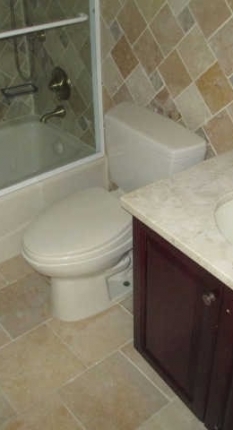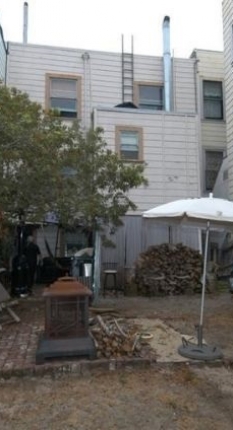Buyer's Guide
What You Need to Know Before You Buy
Here are some of the things you will need to do and know to purchase a property.
WHAT TO DO
Hire a broker and research properties. Buyers work with a local real estate broker to research properties, and most of the investigatory work can be done by the broker on the client’s behalf. The broker is not paid until the sale is final. Payment is usually a small percentage of the final sale price. When you are choosing a broker, look for an agency with long-term expertise in the area.
Make an offer and sign a contract. Once you’ve chosen a property, make a written offer to the seller in the form of a contract or “purchase agreement.” The contract commits you to buy the property and commits the property owner to sell you the property. Most contracts are prepared by the broker. A contract should provide a description of the property, state whether the property is furnished or unfurnished, document the condition of the property, state whether there will be an inspection, outline the timing of the transaction and any contingencies, provide disclosure of certain information, and determine how the costs will be allocated.
Get financing. In the contract, you will outline whether you will obtain a loan or pay in cash. If you need a loan to purchase the property, you will need to apply for the loan with a lending institution or bank.
Hire an attorney. The attorney will examine the title to the property to make sure the property can legally be sold.
Get an inspection. The seller is usually responsible for providing a wood infestation report, and if there is damage or infestation, the seller is normally responsible for repairing it before the transaction is completed. The buyer can also have other inspections done to determine the condition of the house and its systems. House inspections usually cost about $350 to $550 (USD).
Consider getting a survey. The buyer can request a survey of the property, which is an inspection and documentation of the boundaries and corners of the lot. Getting a survey is optional.
Close on the property. The date that the transaction is finalized is the “closing date.” At closing, the seller provides a deed to the buyer, which serves as evidence of the transfer. You do not have to be present for the closing but you should be available by phone, fax, and/or email if you cannot be present. You can provide a limited “power of attorney” to your attorney or other local representative so that they can sign documents on your behalf, or you can have the documents sent to you to sign, but they would need to be signed in front of a U.S. Consular Officer at the nearest U.S. Embassy.
WHAT TO KNOW
Neighborhood regulations and fees. Subdivisions and gated communities, also called “plantations” or “planned unit developments,” usually have their own sets of governing documents that outline rules, regulations, and fees. Your closing attorney will contact the property owners’ association to find out what you need to know and to let them know about your purchase of the property.
Condominium ownership. Condominiums usually are buildings with separate units or apartments that are used only by the buyer/owner, while the rest of the building (the roof, exterior and any amenities) are owned together by all the co-owners. Condominiums also usually have owners’ associations, boards of directors, and their own regulations and fees.
Home insurance. In coastal areas, there are usually three types of insurance policies: general casualty, wind and hail, and flood. After you sign the purchase contract and before you close on the sale, you will need to select an insurance broker and purchase insurance. For condominiums, you usually only have to insure what is inside your unit. Talk to your attorney and insurance agent to find out what you need.
Taxes. When you buy a property, the seller and buyer pay “transfer taxes” to the state, county. While you own the property, you will pay an annual real estate tax based on the value of the property. If you will be renting the property out to others, the property will create income, and in most cases you will have to pay an annual tax on that income. If you sell the property, you will pay a “capital gains” tax that is based on your profit from the sale of the property. When you purchase a property, you will need to obtain a federal taxpayer identification number from the federal Internal Revenue Service (IRS) in order to pay your taxes.
Tips for Foreign Ownership
- Establish a U.S. banking relationship.
- Have funds available from your own country for the purchase.
- Review any tax implications in your own country for owning U.S. property.
- Establish local contacts with an accountant (to file tax returns, obtain your taxpayer identification number, and assist with tax advice), a handyman or a caretaker for the property, and a rental management agent if the property is to be rented.






